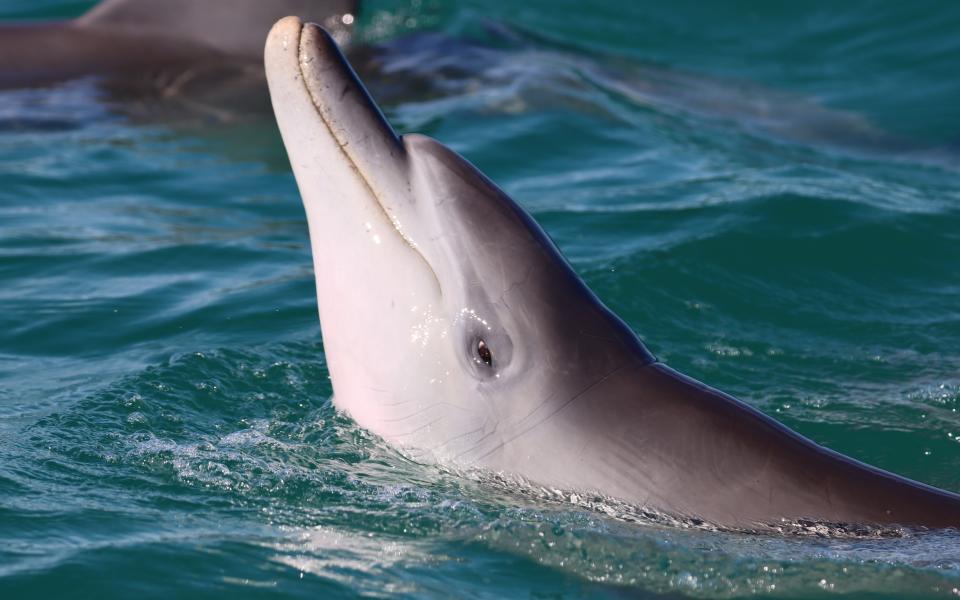Male dolphins ‘use social play to hone mating skills years before they mature’
Dolphins who spend more time playing with each other as youngsters will go on to father more offspring later in life compared to those who do not, a study suggests.
Male bottlenose dolphins are known to form lifelong bonds that help them find mates.
But scientists have now found that their training begins as juveniles – which involves role-playing and practicing adult-like mating behaviour.
Researchers from the University of Bristol found young dolphins spent “significant” amounts of time taking turns in pretending to be adult males and females.
When playing with female dolphins, young males also produced clicking noises called “pops” – which is what adults use to attract mates.
The researchers said their findings, published in the journal PNAS (Proceedings of the National Academy of Sciences), is helping shed light why animals engage in social play – something which has puzzled scientists for more than a century.
Dr Stephanie King, associate professor from University of Bristol’s School of Biological Sciences, said: “Play behaviour is widespread in humans and other animals, but the reasons that animals play together have long remained a mystery.
“This study provides compelling support for the idea that animals in the wild play together to practice behaviours that will be important for them as adults, and that if they practice enough, they will be more successful as adults.”

For the study, the researchers analysed 30 years of data, tracking the behaviour of young males – aged between four and 14 years – in Australia’s Shark Bay.
Genetic paternity tests were used to find out how many offspring each dolphin had fathered.
Male dolphins have a complex social network, usually made up of large, stable alliances as well as smaller, less stable groups of two to three within that network.
Smaller groups team up to mate, which often involves stealing female dolphins from other alliances, or defending against attacks from outsiders.
The researchers said their work shows young males practice these skills with their likely future allies, years before they become sexually mature.
Dr Katy Holmes, who completed this work as part of her doctoral research at the University of Western Australia, said: “We found that juvenile play involves immature versions of adult reproductive behaviours that are crucial for males to access and mate with estrous (sexual receptive) females, and the time spent doing these play behaviours predicts how many offspring males eventually sire as adults.
“Our work is exciting because historically it has been notoriously difficult to link play behaviour to reproductive success, in this case the number of sired offspring, in wild animals.”
The team said further work is needed to assess whether other factors body size and dominance may have played a role in the mating success of some of the dolphins.


